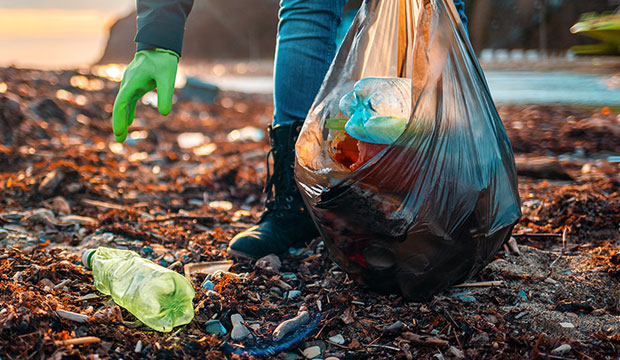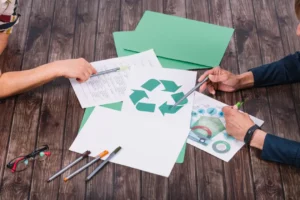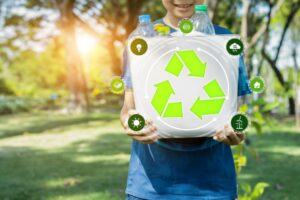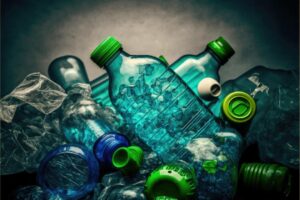Over the past few years, plastic recycling has become a major cause of pollution. Usually, because of a lack of knowledge, different manufacturing plants combine a good number of different types of plastics which makes the recycling process exceptionally difficult. It’s why we often find plastics being sent to landfills or floating in the oceans.
Several challenges make it difficult to recycle plastic, but there are also some solutions to overcome them. The few main steps that must be taken into consideration are too efficient and less time-consuming:
Increasing Knowledge
Plastic exists in many forms. It’s very important that one must know what type of plastic can be recycled. The better quality ones such as polyethylene terephthalate (PET) can be recycled into bottles, containers, and different packaging materials while the lesser quality ones must often be downcycled or discarded. These may include plastic films and bags, as well as Styrofoam.
Technological Improvements
Technology is constantly developing; this also applies to plastic recycling. The recycling process requires an efficient sorting system to identify and extract different types of plastic. An innovative technology, the Near Infrared (NIR) sorting system, can detect the kind of polymers present in the plastic and classify them accordingly. This aids human workers and makes it easier and faster to separate different types of plastic.
Economic Incentives
Currently, all the cost associated with plastic recycling is dependent on how much income the plastic is going to generate. This makes plastic recycling difficult for businesses to sustain in the long term without some form of economic reward. Governments and other organizations should consider providing subsidies or incentives to encourage businesses and citizens to recycle plastic. One of the major ways how businesses can earn economic incentives through plastic recycling is by making use of extended producer responsibility (EPR). This involves manufacturers and retailers taking financial responsibility for all aspects of a product’s life cycle, from production to disposal.
In most states of the USA, the government introduces many economic incentives like tax credits or grants for plastics. It makes the entire recycling practice a much more sustainable model.
Improving Separation Processes
The current recycling process isn’t perfect and plastic sorting is still often done manually. This is slow and inefficient, but it can be improved with machines that make sorting much easier. Automated separation processes normally require sorting of the plastic into different categories, such as PET, polypropylene (PP), and polyvinyl chloride (PVC). Automation also makes it easier to identify non-recyclable plastics.
Plastic recycling is difficult but with the right methods, the process can be very simple and much more efficient. Increasing knowledge and understanding, implementing technological improvements, providing economic incentives, and improving separation processes are all important steps towards achieving a sustainable future.
Increasing Availability of Collection Services
Another important way to increase plastic recycling is to make collection services more available. Many cities and towns are providing dedicated bins for collecting different kinds of plastic waste. This makes it easier to separate different types of plastic and recycle them accordingly. Furthermore, businesses should also consider implementing drop-off points to encourage consumers to return their plastic waste.
Reusing Plastic Waste
In addition to recycling plastic, it can also be reused in various forms. For example, plastic bags can be used as fertilizer or stored compost in gardens and farms. Plastic bottles can also be reused to create art and craft materials or for insulation purposes. Furthermore, certain plastic wastes can be turned into pellets to be used in the creation of new products such as plastic toys, plastic bottles and other everyday objects.
Concluding Thoughts
In conclusion, plastic recycling is challenging but it can be achieved with the right approaches. Increasing knowledge and understanding, implementing technological improvements, providing economic incentives, improving separation processes and making collection services more available are all important steps towards achieving a sustainable future. Finally, if you want to get rid of plastic waste (may it be commercial or industrial) APJ Recycling can offer you the best service you need to recycle plastic waste properly and safely. APJ Recycling is a trusted plastic recycling business that offers a wide range of services including sorting, shredding, and baling to ensure that all plastic waste is properly recycled.
Contact APJ Recycling and let our experts help you find the best solution for your plastic waste recycling needs. We hope this article has provided helpful insights for you.







